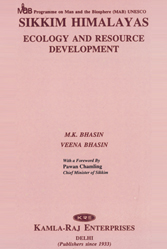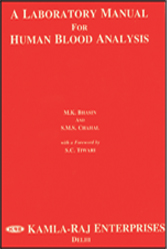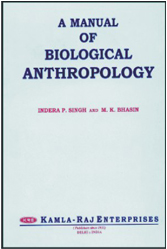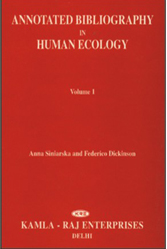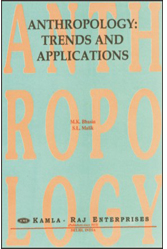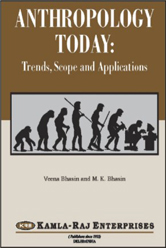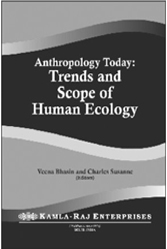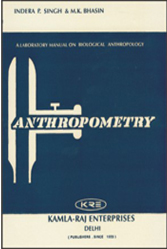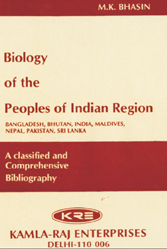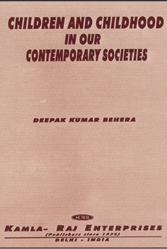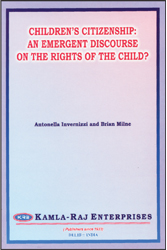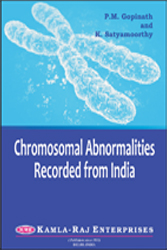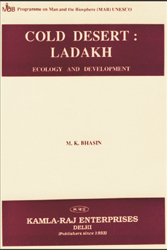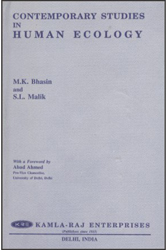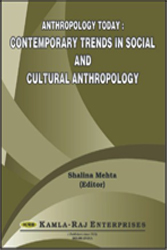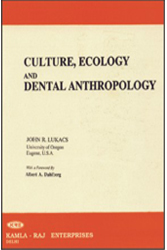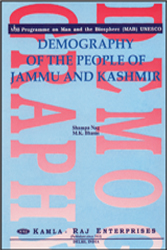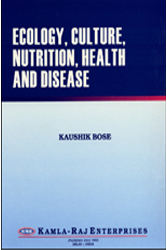FORENSIC - ANTHROPOLOGY, SCIENCE AND MEDICINE
SURINDER NATH (University of Delhi, Delhi, India),V. N. SEHGAL (C.F.S.L., CBI, New Delhi, India) AND M. K. BHASIN (University of Delhi, Delhi, India)
2005• Pages: 204 • Size: 140 x 220 mm • Binding: Hard • ISBN 81-85264-36-8 •
Price: US$ 25/- Rs. 450/-
Forensic Anthropology is the application of physical anthropologist’s specialized knowledge of human sexual, racial, age, stature and individual variation to problems of medical jurisprudence. In other words it is the application of the physical anthropological techniques to the legal process. Identification of the recently dead persons falls under the domain of forensic medicine, while that of the decomposed/mutilated bodies and skeletal remains comes under the canopy of forensic anthropology. Forensic Anthropology has its roots in medical sciences, especially anatomical sciences; methods used in identification of skeletal remains were derived from anatomy school cadavers whose age, sex, stature and morbidity are known. The main function of forensic anthropology is to examine human variability and use it for identification purpose. May it be from finger prints, morphological characteristics like hair or other bodily characters or through handwriting analysis? This volume also includes papers pertaining to ballistics, wherein advanced techniques of comparing the use of fire arms are discussed. Finally this volume presents studies related to analysis of poisonous material and its impact in homicidal cases.
M. K. BHASIN, SURINDER NATH (University of Delhi, Delhi, India) AND V. N. SEHGAL (C.F.S.L., CBI, New Delhi, India)
2007• Pages: 300 • Size: 140 x 220 mm • Binding: Hard • ISBN 81-85264-37-6 •
Price: US$ 55/- Rs. 750/-
Blood - a biological material is the most common evidence found in all types of forensic investigations. There are two major areas of investigation: Testing for biological evidence of kinship in civil cases; and characterization of blood stains in criminal cases. Blood groups typing is still the most commonly using immunological method employed by forensic serologists for the individualization of blood. Certain enzymes and blood proteins exist in multiple genetically different forms. In case of enzymes, these forms are known as “Isoenzymes”. The discovery of HLA polymorphism not only involves the variable alleles in individual loci but also the haplotypes of neighboring lined loci which increases the discrimination potential for individualization and association of some HLA antigens with particular ethnic groups thereby making them important from the forensic point of view. The molecular biology has provided a more reliable techniques of DNA fingerprinting which has revolutionized the forensic analysis of blood evidence in crime investigation and today it is possible to provide valuable information in cases where scare or /and degraded amount of crime scene material could have been a limiting factor. Population studies and generation of DNA databases and quality systems are further advancements in the forensic investigation of blood evidence. The blood analysis proves useful for the forensic serologist in establishing the reliability of the results in any court of law.
SOCIETY, CRIME AND PROSECUTION
V. N. SEHGAL (C.F.S.L., CBI, New Delhi, India), SURINDER NATH AND M. K. BHASIN (University of Delhi, Delhi, India)
2005• Pages: 220 • Size: 140 x 220 mm • Binding: Hard • ISBN 81-85264-38-4 •
Price: US$ 25/- Rs. 450/-
It is essential for the law enforcement agencies to identify an individual responsible for a criminal act from among a multitude of people. This is possible only if the law enforcement agency is well equipped with modern laboratories where scientific analysis of physical evidence, recovered from crime scenes is possible. It is not only physical evidence but even trace evidence like strand of fiber or hair or a latent impression of a finger, a washed blood spot, a fragment of a bone or single tooth could unfold unsolved mysteries of crime to help the law enforcement agencies. This volume also deals with trends and legal status of lie-detection in medico-legal investigations, as well as, about the intricacies of the prosecution process. Besides dealing with the theories of crime and its causation, violence against women and the role of forensic science in the contemporary society has also been dealt with.
Rates include postage air mail delivery
Rates in Rupees (Rs.) for India
Prices of Some Titles subject to change without prior notice
